Today is the 29th World Aids Day, a day to reflect on the millions of lives lost to the Aids and how far we’ve come in the movement to end it. In past years, mistaken ideas about Aids/HIV have sometimes taken hold of the public mind. Here are some misconceptions about Aids/HIV.
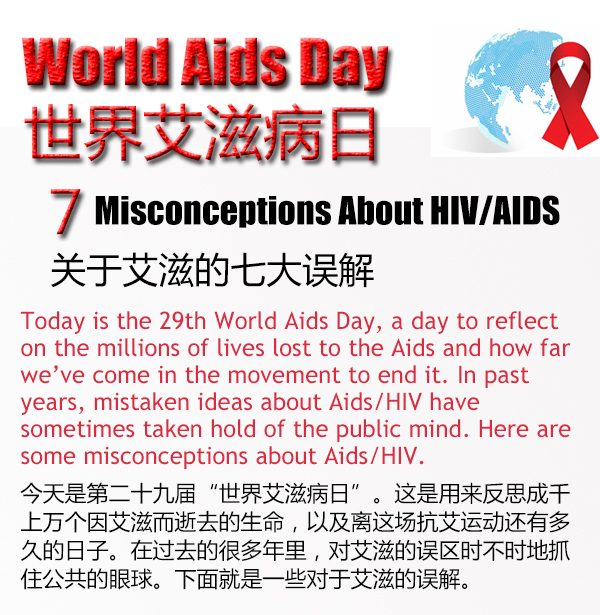
Misconception 1: Being HIV+ Means You Have Aids.
Being diagnosed with HIV means that you have been infected with Human Immunodeficiency Virus, but it doesn’t necessarily mean you have Aids. In general, it takes 2~10 years after HIV infection, sometimes even longer, for the virus to attack the infected person’s immune system and develop symptoms or signs of Aids.
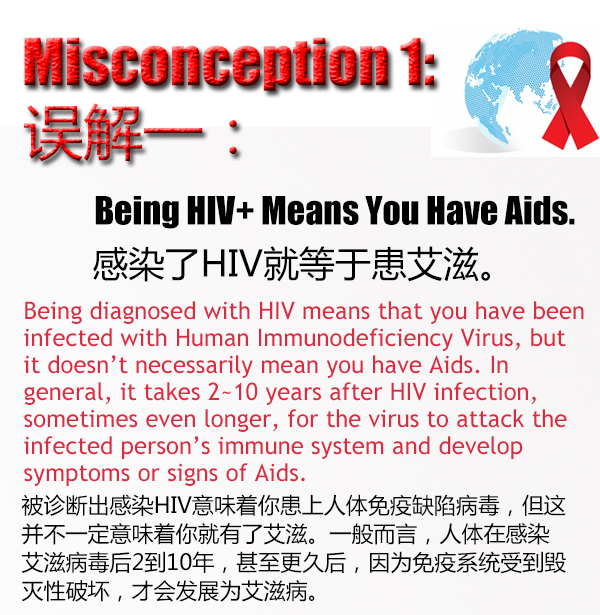
Misconception 2: Once You Have Been Infected With HIV, You Will Die Soon.
Aids is still a word that strikes fear into the hearts of those who believe that once you have been infected with HIV, you will die soon, producing a deep sense of powerlessness. In fact, the time from HIV infection to death depends on the therapy or treatment you get. In past years, effective HIV treatment has brought about incredible changes, many doctors hold a view that, with right treatment and professional therapy, people living with HIV can expect to live a normal life span.
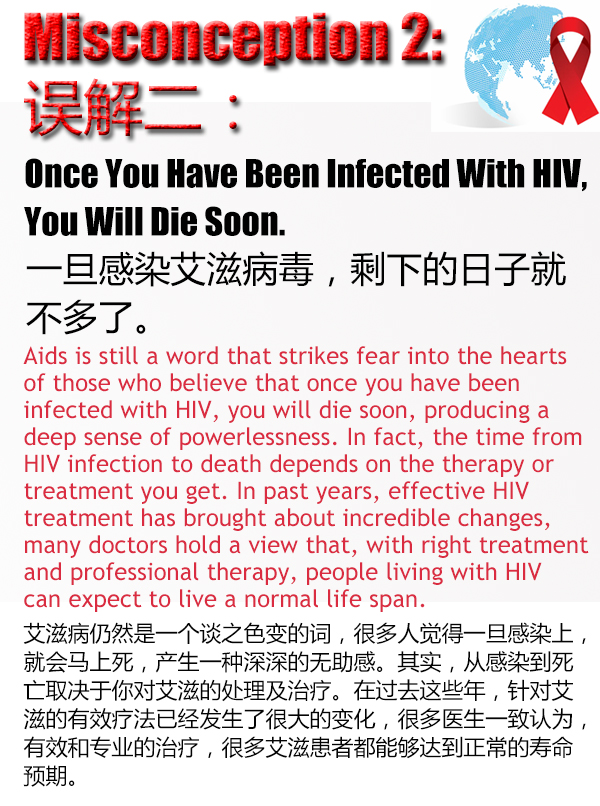
Misconception 3: Only High-risk Groups Like Promiscuous People And Drug Addicts Get Aids.
In China, Aids has already spread from high-risk groups to the general population. From 1985 to 2005, the statistics showed that the main route of HIV transmission relies largely on intravenous drug use and illegal blood trade. From Jan to Aug this year, however, sexual transmission takes up more than 90% of all new HIV infections, which means the spread of Aids is becoming increasingly invisible.
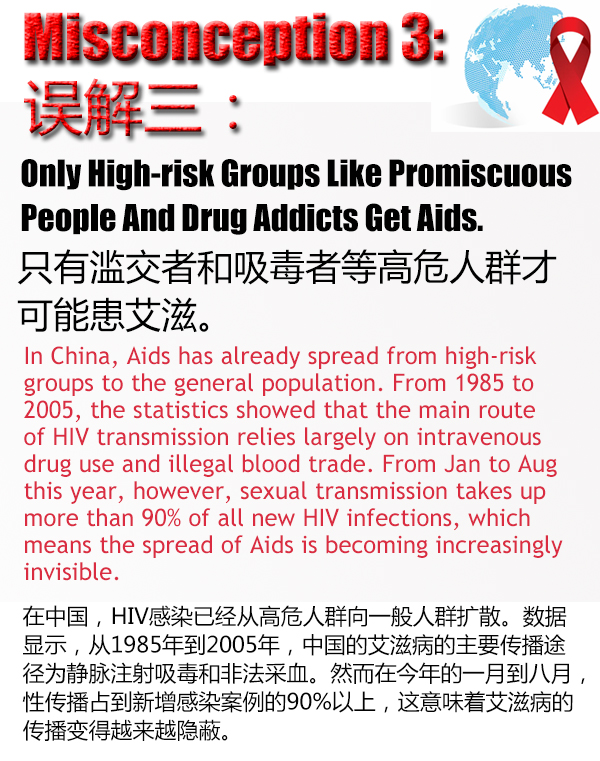
Misconception 4: Gay=HIV
In some people’s eyes, HIV is a gay disease, because anal sex is riskier than vaginal sex. On the one hand, the cells in the anus are much more susceptible to HIV than cells in the vagina. On the other hand, both semen and rectal mucosa are easier to carry HIV than vaginal fluid. In fact, HIV does not discriminate on the basis of sex orientation—It can infect male or female, straight or homosexual. Homophobia and discrimination can be especially hard to prevent HIV/Aids.
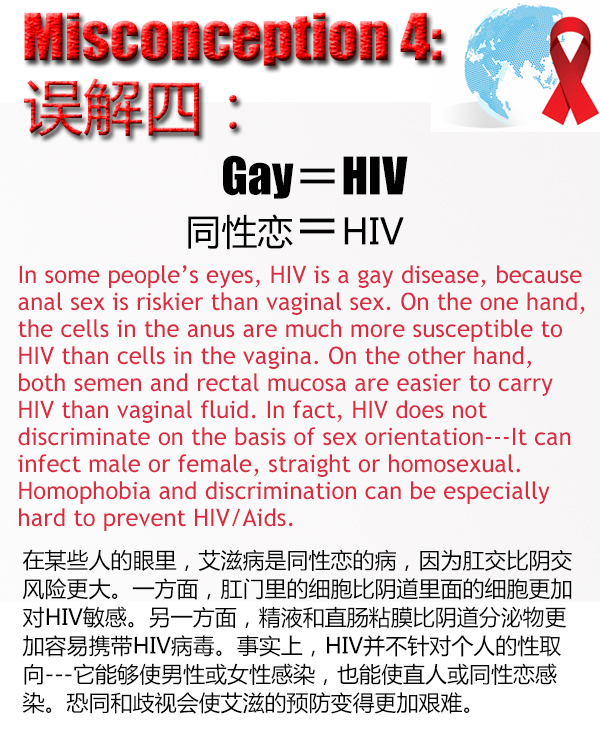
Misconception 5: Condom Can’t Prevent Aids.
According to World Health Organization(WHO), condoms can reduce HIV transmissions by about 85%. And a condom is an important tool in preventing the spread of HIV, as well as some other sexually transmission disease(STD). Of course, the safest way of preventing HIV is to reduce multiple sex partners and avoid “One Night Stand”.
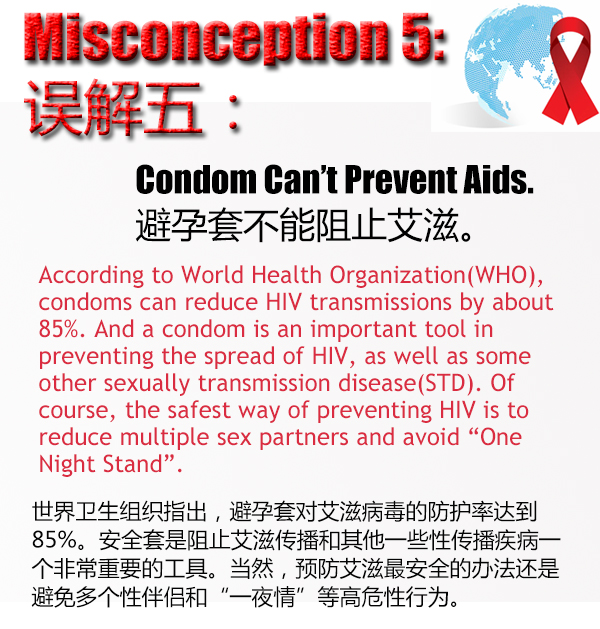
Misconception 6: You Can Test HIV Through Blood Donation And HIV Test Kit Bought Online.
Testing for HIV through blood donation, not only against the voluntariness of blood donation, but also an irresponsible behavior. Besides, some doctors cautioned that many HIV test kit may not meet the quality standards and the accuracy can’t be guaranteed. So professional testing for HIV should be done in a medical setting.
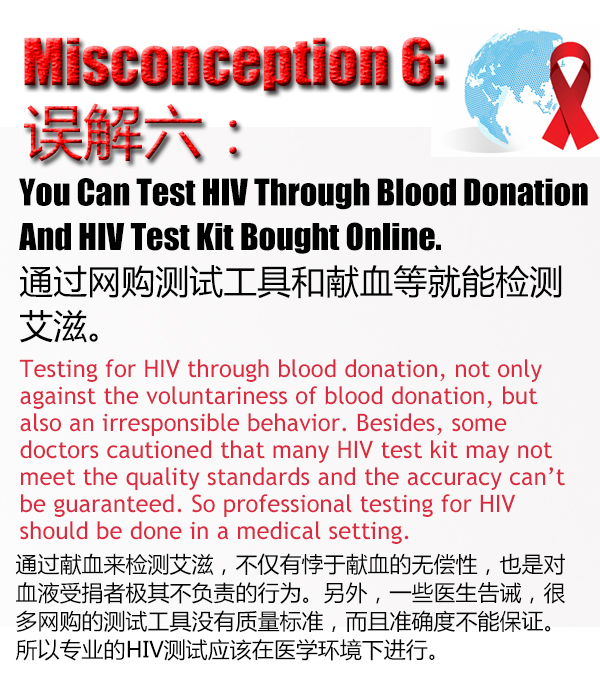
Misconception 7: HIV-positive Women Can’t Have A Healthy Baby.
Despite the fact that HIV can pass from an HIV-positive mother to her unborn baby during pregnancy. But great progress in medicine science means it is possible for an HIV-positive mother to have a healthy baby that is not infected with HIV. Professional treatment for both the mother and her baby can minimize the likelihood of that happening.
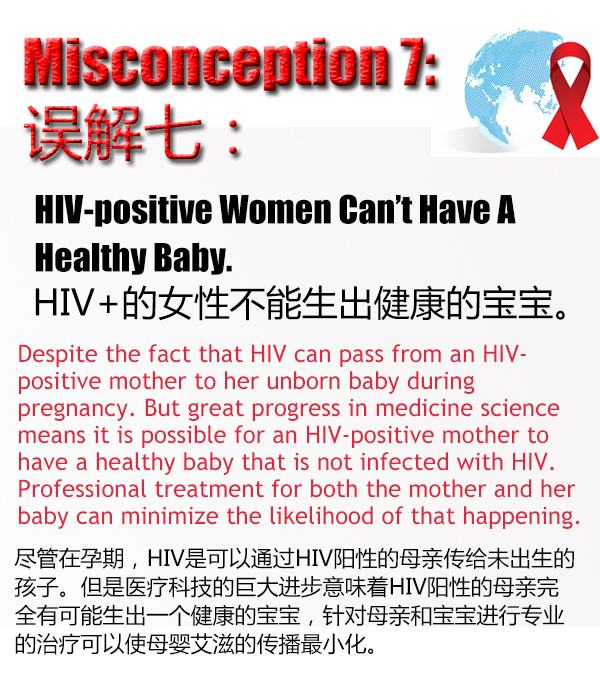
For more information: World Aids Day—7 Misconceptions About HIV/AIDS